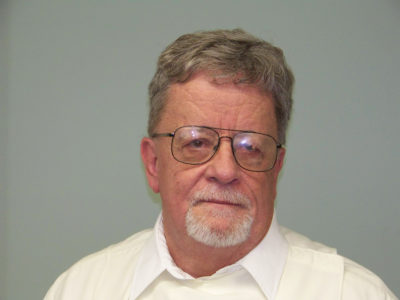
Father Jeremy Tobin
Millennial reflections
By Father Jeremy Tobin, O. Praem
Mark your calendars. Catholic Day at the Capitol will be Wednesday, February 27. This will be a time to further develop Catholic Social Teaching in the broad area of Criminal Justice, in several areas: prison reform, re-entry, ending the death penalty, and how to practice restorative justice in families, parishes, and communities. Sue Allen, coordinator for the office of parish social ministries, wrote a piece that already appeared in Mississippi Catholic, and pointed out that restorative justice “follows the model presented in the Gospels.”
Restorative justice is not new. It has been around for some time. On November of 2000, the U.S. Conference of Catholic Bishops issued “Responsibility, Rehabilitation and Restoration, A Catholic Perspective on Crime and Criminal Justice.” The idea goes back further. “Defining it can be elusive because it is a philosophical way of thinking about crime and conflict, rather than a distinct model or system of law.”
This view holds that “criminal behavior is primarily a violation of one individual to another. When a crime is committed it is the victim who is harmed, not the state. Instead of the offender owing a ‘debt to society’ which must be expunged by experiencing some form of state-imposed punishment, the offender owes a specific debt to the victim which can only be repaid by making good the damage caused.” (Zehr 1990)
The focus is on the victim, the community and all impacted by the offense. In places where this is used, in conjunction with ordinary methods, a sharp decrease in recidivism has occurred. Further evidence of substantial healing among all parties has been recorded.
Last year the day concentrated on mental health. Angela Ladner, Executive Director of the Mississippi Psychiatric Association and Joy Hogge, Executive Director of Mississippi Families as Allies presented the situation of the state’s mental health plan and its shortcomings. The state still struggles with this. They made a good case that mental health is at the bottom of many other social ills, not the least among those is the criminal justice system.
I worked I in that system and still do, providing church services to inmates at the Federal Corrections Complex in Yazoo City, two other priests of our community serve inmates in the Federal Prison near Natchez, a privately-run prison.
Money impacts all of these systems in turn – the state mental health system, state prisons, the whole criminal justice system. Already I have been to joint senate and house judicial A and B committees over the budget for the state’s system. The meeting was well attended by advocates and others. Advocacy groups such as the ACLU, Southern Poverty Law Center, and others offered strong presentations on budget priorities. Budgeting is always an issue, but more so when those behind bars are so stigmatized.
As church we fight to abolish the death penalty. Undergirding our views around criminal justice, mental health, and related issues is the Gospel principle of healing and restoring people’s lives.
The climate in the country is so harsh and punitive, split along every line. I wrote here before about the racial impact on criminal justice commenting on Michelle Alexander’s seminal word on mass incarceration.
All of this advocacy is part of Church. As Church we are to be the healing hand of Jesus. We are to be peacemakers not war-makers.
So talking about restorative justice is about healing of victims, of communities of families and, yes, perpetrators. Why? All are human beings.
We have some terrific people this year who will open your minds and even your hearts. We have John Koufos, National Director of Reentry Initiatives for Right on Crime, and Haley M Brown, Oktibbeha Country prosecutor and law professor at Mississippi State University in Starkville. Read more about their presentations on page 1 of this issue of Mississippi Catholic.
I hope to see many of you there.
(Father Jeremy Tobin, O.Praem, lives at the Priory of St. Moses the Black, Jackson.)
